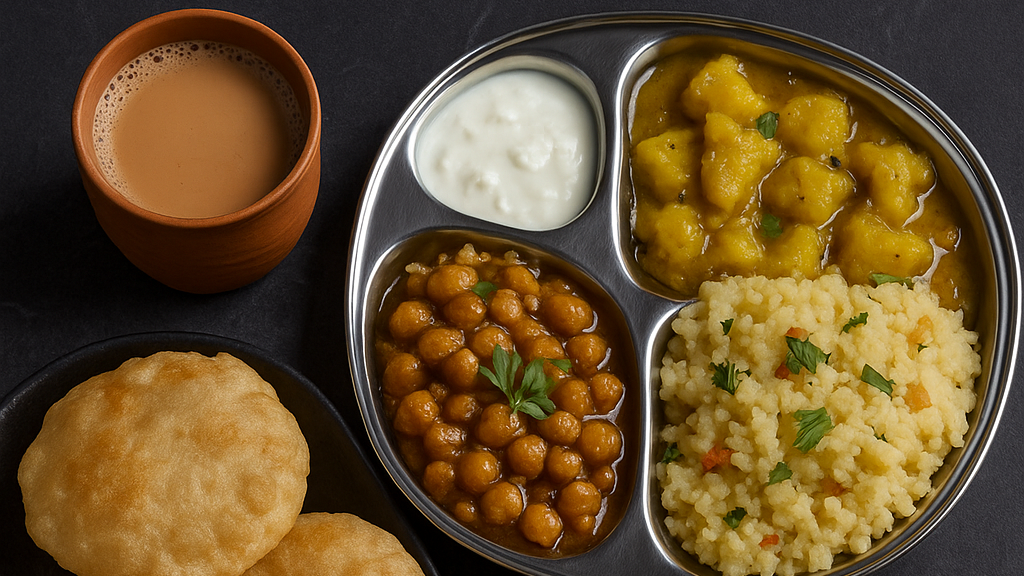Published: 3 June 2025, 10:00 IST
Estimated reading time: 4 minutes
They look bright. They taste sweet. They say “100% natural” on the label. But behind the colourful bottles, fruit juices might not be as “healthy” as you think. Experts and research from around the world now reveal the truth — and it’s not so refreshing.
Here’s what they’re saying, with only verified facts and direct quotes from doctors, scientists, and official health sources. ALSO READ: “Is Your Daily Water Safe? Find Out Now!”
Too Much Sugar — Even in “Pure” Juice
Many of us turn to fruit juice as a better choice than soda. But the sugar? Shockingly similar.
In an article by Vogue, health experts revealed:
“An 8-ounce glass of apple juice can have around 27 grams of sugar — comparable to a can of soda.”
That’s more than six teaspoons of sugar in just one small glass.
At a health conference in Boston (May 2024), Dr David Ludwig, a Harvard nutrition expert, said:
“Fruit juice often leads to sugar spikes because the fiber is removed.”
So while the juice may look natural, it hits your blood sugar almost as fast as a fizzy drink. ALSO READ: “Is Skipping Breakfast A Silent Killer? Shocking Facts Inside”
Where Did the Fibre Go?
Whole fruits are full of fibre. But when you juice them, most of that fibre is lost. And fibre is important — it slows down sugar absorption and helps you feel full.
According to Healthline:
“Juicing removes the fiber found in whole fruits, which helps slow sugar absorption and promotes satiety.”
Without fibre, fruit juice behaves more like liquid sugar — quick to drink, easy to overdo. ALSO READ: Why Tea Drinkers Live Longer: The Sip That Adds Years – But Only If Brewed Right
Real Risks: What the Science Says
Fruit juice might taste light and healthy, but drinking too much of it can have serious long-term effects.
In April 2025, ABC Action News reported:
“Drinking too much fruit juice has been linked to premature death risk, obesity, and heart disease.”
That’s not an opinion — that’s based on health studies. It’s also why the Heart and Stroke Foundation advises no more than 150ml a day of juice.
They stated in their 2023 report:
“This amount has been associated with a lower risk of heart disease and stroke.”
Even your teeth can suffer. Natural fruit acids and sugars can wear away enamel, increasing the risk of cavities. The American Dental Association warns about this too. ALSO READ: “Waking Up at 5 AM: Does It Really Change Your Life?”
Juice or Just Sugar Water?
Many fruit drinks in stores are not 100% juice, even when they claim to be “natural.” A 2024 investigation by 6ABC News found:
“Some popular fruit drinks contain as little as 5% actual fruit juice and high sugar levels.”
These are not health drinks. They are sugar bombs in disguise — often with more calories than people expect. ALSO READ: What Happens to Your Body When You Stop Eating Ultra-Processed Foods
Better Choices That Still Taste Great
Experts suggest simple swaps:
- Choose whole fruits instead of juice. You get the fibre, the vitamins, and fewer sugar spikes.
- Try smoothies made from whole fruits and vegetables.
Vogue recommends these as they “retain fibre” and keep you fuller longer. - Drink water infused with fruits like lemon, berries, or cucumber — refreshing, natural, and guilt-free.
The Final Sip
So, are healthy fruit juices really healthy? Not always. With high sugar content, lost fibre, and health warnings from leading experts, it’s clear they should be an occasional treat, not an everyday drink.
Before your next sip, check the label — or better yet, grab a whole apple instead.
LATEST NEWS
- Premalu 2: What We Know About the Sequel So Far
- Samantha Caught With Raj Again – It’s Official?
- Lucky Bhaskar 2: Powerful Sequel Confirmed by Venky Atluri
- Mysaa: The Powerful Meaning Behind the Title
- War 2 Movie Shocker: Fans Deeply Disappointed
- Pawan Kalyan OG Release Date Confirmed, No Delay
- Kannappa Prequel Confirmed? Shocking Twist Revealed
- Ramayana First Glimpse Teaser Launch: All Exciting Details Inside
- Hari Hara Veera Mallu Trailer: Full Theatre List Out Now
- Hari Hara Veera Mallu Trailer: Epic Reveal on July 3




